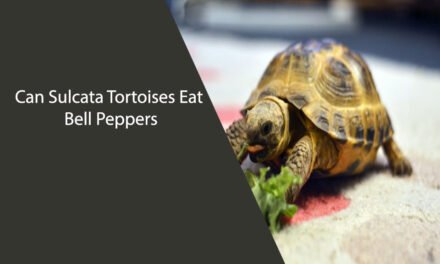Goats are known for their love of hay, but can they eat moldy hay? As goat owners, it’s important to know what our animals can and cannot consume. Moldy hay is a common issue that many farmers face, and it’s important to understand the potential risks associated with feeding it to our goats.

Moldy hay can contain harmful toxins that can be dangerous to our goats. These toxins can cause a range of health issues, including digestive problems, respiratory issues, and even death. As such, it’s important to take steps to prevent mold growth in our hay and to properly dispose of any moldy hay that we come across. However, not all moldy hay is created equal, and there are some types of mold that are less harmful than others. In this article, we’ll explore the risks associated with feeding moldy hay to goats and provide some tips for preventing mold growth in our hay.
Table of Contents
Understanding Goat Nutrition
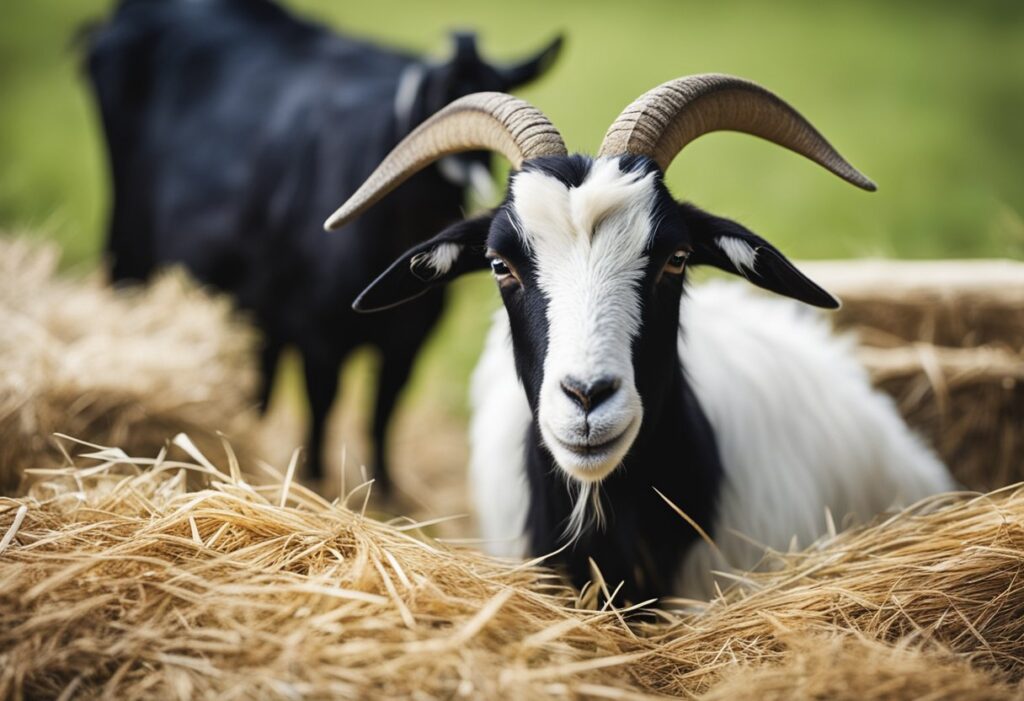
Goats are unique creatures that require a balanced and nutritious diet to maintain their health and well-being. As herbivores, they rely on a diet of vegetation, including hay, grass, and other plants. It’s important to understand the nutritional needs of goats to ensure they receive the proper nutrients to thrive.
One of the key components of a goat’s diet is fiber. This is where hay comes in, as it’s a great source of fiber for goats. However, not all hay is created equal. Moldy hay, for example, can be harmful to goats and should be avoided.
In addition to fiber, goats also require protein, energy, minerals, and vitamins in their diet. These nutrients can be obtained through a variety of sources, including grains, legumes, and supplements.
It’s important to note that the nutritional needs of goats can vary depending on factors such as age, weight, and activity level. As such, it’s important to consult with a veterinarian or livestock nutritionist to develop a diet that meets the specific needs of your goats.
By understanding the nutritional needs of goats and providing them with a balanced and nutritious diet, you can help ensure their health and well-being.
The Dangers of Moldy Hay
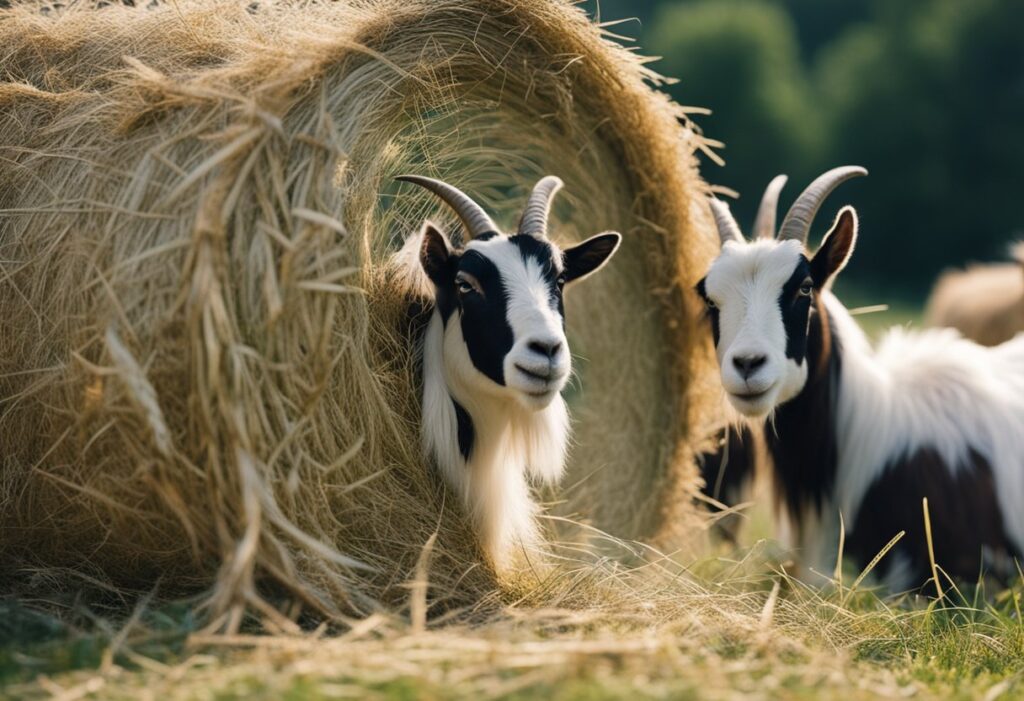
Moldy hay can pose serious health risks to goats. Ingesting moldy hay can cause respiratory problems, digestive issues, and even death in severe cases.
Mold can grow on hay when it is baled at too high of a moisture level or stored in damp conditions. The mold spores release toxins that can be harmful to goats when ingested.
Symptoms of moldy hay ingestion can include coughing, wheezing, diarrhea, and lethargy. In severe cases, goats may experience difficulty breathing and even collapse.
It is important to regularly inspect hay for signs of mold and discard any moldy bales immediately. Goats should also have access to fresh, clean water at all times to help flush out any toxins they may have ingested.
In conclusion, it is crucial to take precautions to prevent goats from consuming moldy hay. Regularly inspecting hay for mold, discarding any moldy bales, and providing fresh water can help keep goats healthy and safe.
Symptoms of Mold Ingestion in Goats
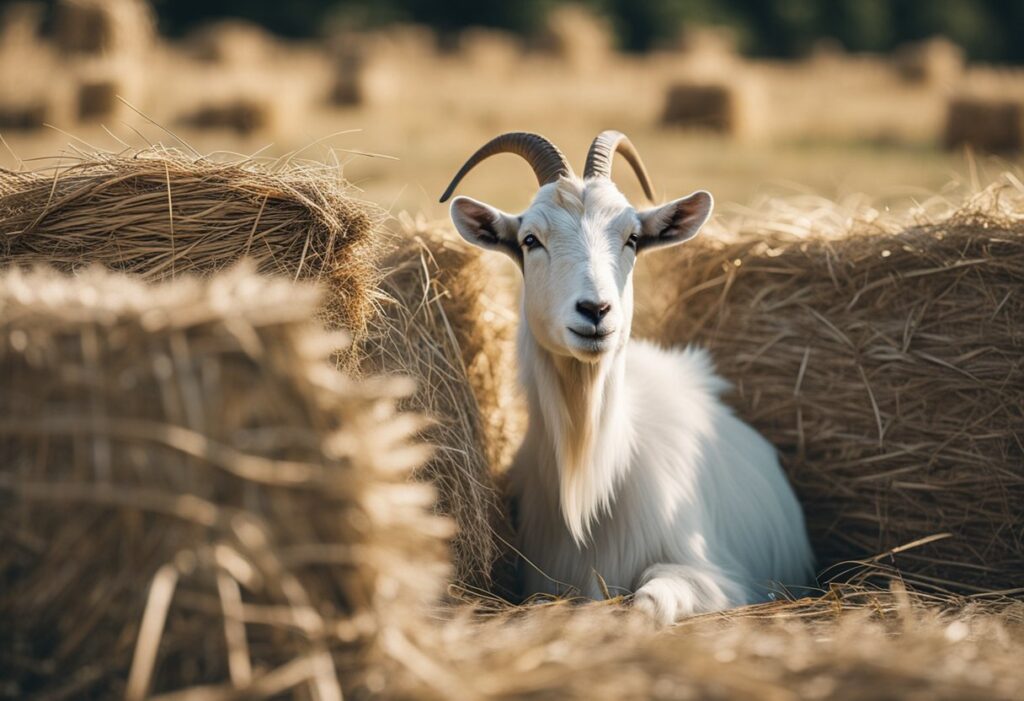
Moldy hay can cause a range of health problems for goats. Some molds produce mycotoxins that can cause illness or even death in goats. Here are some common symptoms of mold ingestion in goats:
- Reduced appetite: Goats may eat less or refuse to eat altogether if they have ingested moldy hay.
- Weight loss: If goats are not eating enough, they may lose weight quickly.
- Diarrhea: Moldy hay can cause digestive upset and diarrhea in goats.
- Respiratory problems: Some molds can produce spores that can cause respiratory problems in goats, such as coughing or wheezing.
- Neurological symptoms: Ingestion of certain molds can cause neurological symptoms in goats, such as tremors or seizures.
If you suspect your goats have ingested moldy hay, it is important to monitor them closely for these symptoms. If you notice any of these symptoms, contact your veterinarian immediately. It is also important to prevent mold growth in hay by storing it in a dry, well-ventilated area and discarding any moldy hay.
Prevention Measures Against Moldy Hay
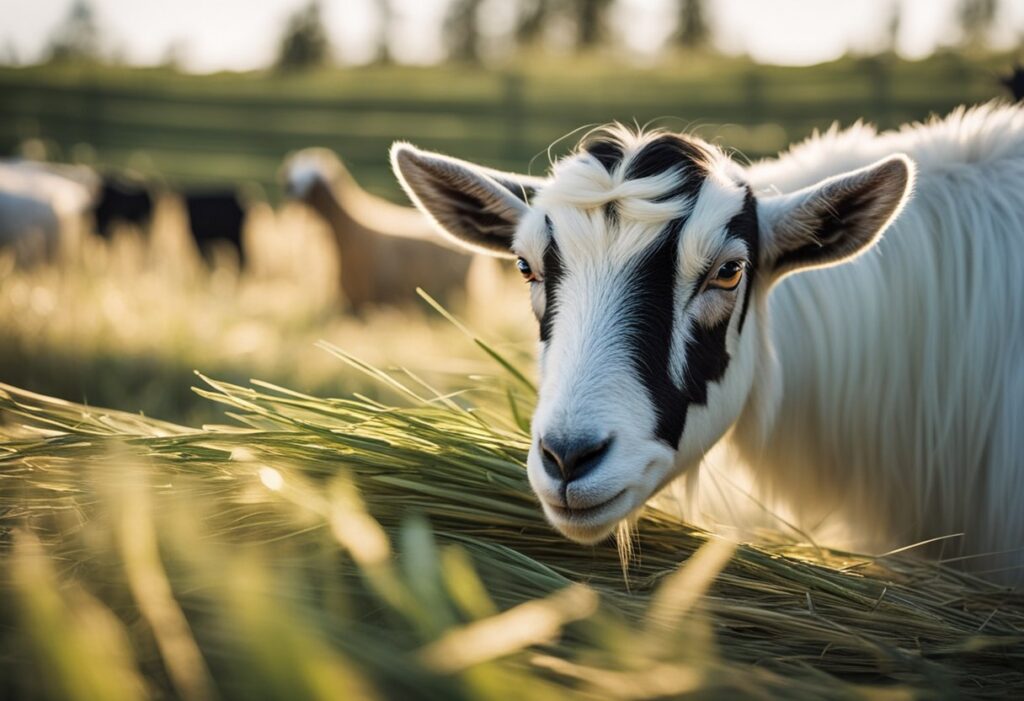
To prevent mold growth in hay, we recommend taking the following measures:
- Store hay properly: Hay should be stored in a dry and well-ventilated area. Avoid stacking hay too high or too tightly, as this can trap moisture and promote mold growth.
- Monitor moisture levels: Check the moisture content of hay regularly, especially if it was baled at a higher moisture level. Hay with a moisture content higher than 20% is at risk of mold growth.
- Use preservatives: Applying preservatives to hay can help prevent mold growth. Sodium propionate and propionic acid are commonly used preservatives for hay.
- Avoid feeding moldy hay: Feeding moldy hay to goats can cause health problems. If you notice mold on hay, remove it immediately and dispose of it properly.
- Rotate hay stock: Using up old hay before it becomes moldy can help prevent waste and reduce the risk of mold growth.
By following these prevention measures, we can reduce the risk of mold growth in hay and ensure our goats have access to safe and healthy feed.
Alternatives to Hay for Goats
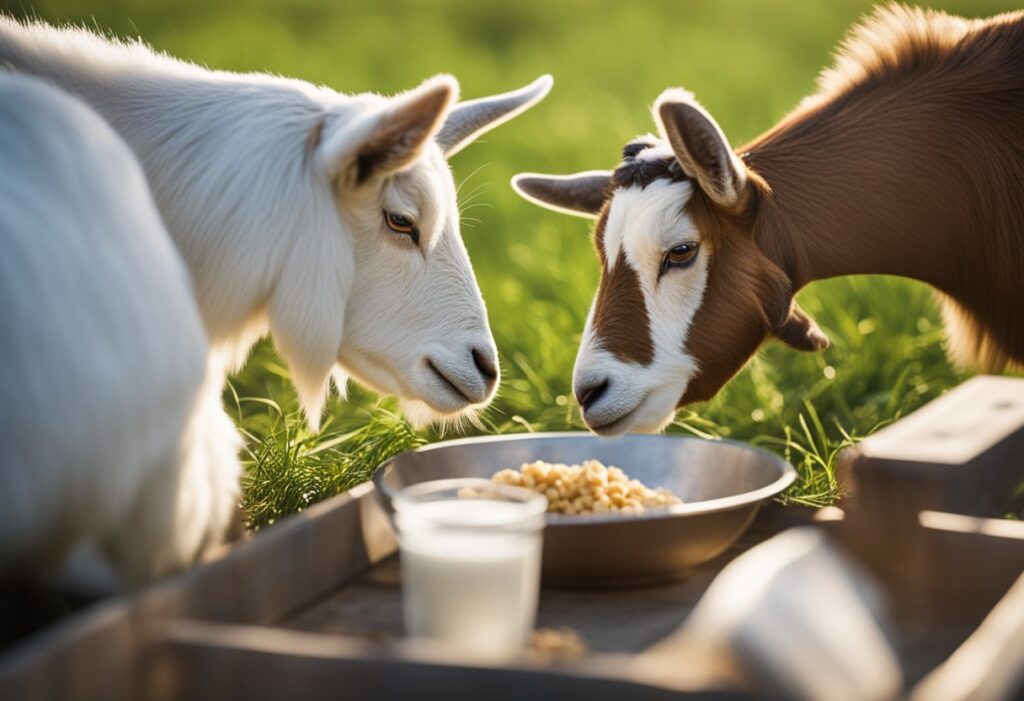
When it comes to feeding goats, hay is a staple food source for many farmers and homesteaders. However, there are times when hay may not be available or may not be the best option for your goats. Here are a few alternatives to consider:
1. Pasture
Goats are natural grazers and thrive on a variety of plants. If you have access to a pasture or grazing land, this can be a great option for providing your goats with a diverse diet. Make sure to rotate your goats to different areas of the pasture to prevent overgrazing and ensure they have access to fresh vegetation.
2. Grain
Goats can also be fed a diet of grain, although this should be done in moderation. Too much grain can lead to health issues such as bloat and digestive problems. When feeding grain, make sure to choose a high-quality, balanced feed that is specifically formulated for goats.
3. Silage
Silage is a fermented feed that is made from chopped, high-moisture forage such as corn or grass. It can be a good alternative to hay, especially during times when hay is scarce. However, it’s important to make sure the silage is properly fermented to prevent mold growth and other issues.
4. Forage
In addition to pasture, there are a variety of forage options that can be fed to goats, including alfalfa, clover, and other legumes. These can provide a good source of protein and other nutrients. However, it’s important to make sure the forage is free from mold and other contaminants.
Overall, there are a variety of alternatives to hay that can be fed to goats. It’s important to choose a balanced diet that meets their nutritional needs and to monitor their health and well-being closely.
Conclusion
In summary, while goats can eat moldy hay, it is not recommended. Moldy hay can contain toxins that can cause health issues in goats, including respiratory problems, digestive issues, and even death. It is essential to provide goats with high-quality hay that is free of mold and other harmful substances.
If moldy hay is the only option available, it is crucial to inspect it carefully before feeding it to goats. Discard any hay that appears to be moldy or has a musty smell. It is also important to monitor goats closely for any signs of illness after consuming moldy hay.
Overall, it is best to err on the side of caution and provide goats with fresh, high-quality hay to ensure their health and well-being. By taking the necessary precautions, we can help our goats live happy and healthy lives.
Frequently Asked Questions
What are the symptoms of Listeria in goats?
Listeria is a bacterial infection that can affect goats that consume moldy hay. Symptoms of Listeria in goats may include fever, loss of appetite, drooling, and neurological issues such as circling, head pressing, and paralysis.
Is it safe for goats to eat hay with white mold?
White mold on hay can be an indicator of Listeria or other harmful bacteria. It is not safe for goats to eat hay with white mold.
What does moldy hay look like?
Moldy hay can have a musty smell and appear discolored or dusty. It may also have visible mold growth, which can be white, green, or black.
Can cows and goats eat moldy hay?
No, it is not safe for cows or goats to eat moldy hay. Moldy hay can contain harmful bacteria that can cause illness or even death in livestock.
What happens if my goat eats moldy hay?
If your goat eats moldy hay, they may develop symptoms of Listeria or other bacterial infections. It is important to monitor your goat closely and seek veterinary care if they show any signs of illness.
Can goats and sheep eat moldy hay?
No, it is not safe for goats or sheep to eat moldy hay. Moldy hay can contain harmful bacteria that can cause illness or even death in livestock.





